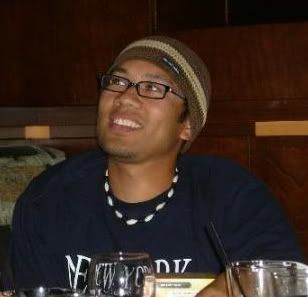The other day, About a Boy was on Irish network Television, RTE2, came upon it surprisingly, or rather, serendipitously (better word, huh). I own the DVD, but as we all seem to know, when it comes to classic favorite movies, no matter how many times you've seen them, they still seem even more special when they are on TV; there is something extra significant about the situation, a magnetic appeal that makes it very difficult to change the channel or leave the room. Add to that, I havent actually seen it in maybe 3 years, so I forgot all the good bits. It was a good day.
Watching About a Boy, and considering its appeal as a romantic comedy, it brought up again an argument from the Xmas Holiday: What defines a Chick Flick?
There was an on going argument with Nina, Crystal and Jill during our stay in Prague and they started it by proclaiming something completely wrong as if it were fact: They said that Love Actually ( the movie that we had scheduled to watch at the apartment for our christmas celebration) was a chick flick.
And I said, Oh no. Hells no. Vehemenently no. I proceeded to make my case passionately and logically, and not to worry, I ended up demolishing them in debate. And I needed to argue this because Love Actually is one of my favorite movies, and hells no way that one of my favorite movies is going to be a chick flick. No way Jose, Calderon.
Why isnt Love Actually a generic Chick Flick? Well because of one simple truth: its lacks a predominating female point of view. Romantic movies and the chick flick genre have always, ALWAYS had at heart a female narrative or at the very least a 50% share with a male lead. This definition highlights the main difference between shows like Sex and the City, from lets say, Entourage. Sex and the City: nothing but female point of view (askew). Entourage: not a single female view in sight, unless being objectified. Another example would be the difference between Big and Sleepless in the Seattle. Both star Tom Hanks, both rely on situational relationship related comedy, but in Sleepless in Seattle, Tom Hanks shares billing with Meg Ryan, and both of their stories are told simultaneously with equal weight. In Big, its only Josh Baskins and his wonderful foot Piano scene in FAO Schwartz (one of the most monumental scenes of the cinematic archives ). The result is: One is a chick flick, and one is not. Now finally, returning to the subject of my first paragraph, theres About a Boy. Even though it stars Rom-Com all star point guard Hugh Grant in a movie about relationships, no one would ever say it was chick flick. Because, well, its about a boy.
As for Love Actually, which is a collection of linear stories that associate with each other loosely in the end, almost every story arc is seen from the males point of view. There's the video camera bloke who fell in love with his bestfriend's wife, Keira Knightley. There's Colin Firths character who gets cheated on, then falls for a portuguese cleaner that he doesnt even know how to speak to. There's Billy Nighs old rocker comeback story, trying to find something meaningful. There's the bug-eyed lad who goes to the Wisconsin to find American girls. Theres Hugh Grants prime minister character, falling for the tea server girl with thunder thighs. And then there is Liam Neeson's cute story arc with his step son, who falls madly in love at the precocious age of 10. And what's left, there is only the Husband and Wife story of Alan Rickman and Emma Thompson, plus the Laura Linney tangential storyline that could be considered female leveraged. This is not enough, too much of a minority. In the end Love Actually is not a chick flick. Its not. If you still think so, try this: name one Chick Flick that doesnt revolve around female character. It doesnt exist. Crystal, who was stumped when I posed the question, even started making up movies. She even used foreign language movies, like the Korean 'My Sassy Girl'; like that even exists. Please..
Subscribe to:
Post Comments (Atom)

No comments:
Post a Comment